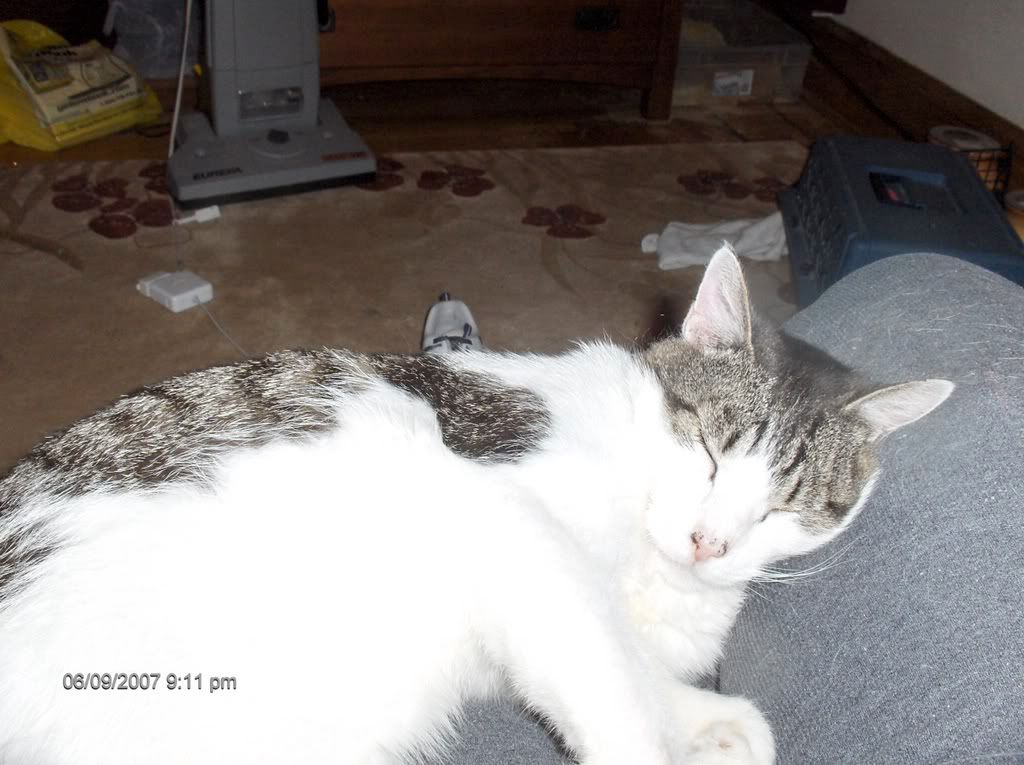I just received an email from a woman who adopted my love bug Monty and said she just took him to the vet because he was drinking a lot of water and peeing excessively, and after tests were run, the vet diagnosed him with early stage kidney failure.
I know others have gone through this. This isn't a death sentence, is it??? Monty is such a sweet heart!! I wonder what causes this?? he was a stray for a while, and was in the shelter in Huntingdon, but he was such a good boy here with me. I always said he was mellow, and the vet said it's LETHARGY. Boy do I feel like a bad foster mom
I thought he was ok after the UTI. He was laid back and mellow when I picked him up originally. I wouldn't have said lethargic. I just thought he was older what we were told.
Is there anything that can be done?? The woman who adopted him said they plan to keep him at home and happy, but that sounds like a death sentence. I don't see where this has to be envisioning the cat dying in a few months.... is it??? I feel so helpless and like I've totally let this poor boy down, not to mention the new owners. Monty is such a good boy. So polite and so sweet. He so doesn't deserve this.
Please, any suggestions will be appreciated, and any thoughts and prayers for him would be too.






 Reply With Quote
Reply With Quote




Bookmarks